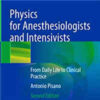Evaluation of abdominal compression-decompression combined with chest compression CPR performed by a new device
sjtrem.biomedcentral.comCompression–decompression cardiopulmonary resuscitation (CO-CPR) was more beneficial than standard cardiopulmonary resuscitation (STD-CPR) in terms of survival benefits in patients who have suffered out-of-hospital cardiac arrest.
The differences were not statistically significant in the proportion of patients who achieved ROSC [31/135 (23.0%) versus 35/143 (24.5%)] and survived to hospital admission [28/135 (20.7%) versus 33/143 (23.1%)] between the CO-CPR group and STD-CPR group.
However, there was a significant difference in the proportion of patients who survived to hospital discharge [16/135 (11.9%) versus 7/143 (4.9%)] between the two groups.
Nine patients (6.7%) in the CO-CPR group and 2 patients (1.4%) in the STD group showed good neurological outcomes according to the cerebral performance category (CPC) scale score, and the difference was statistically significant (P = 0.003).

















